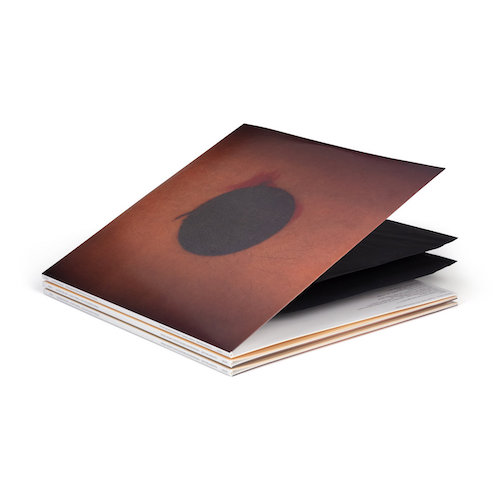“On its surface, AQF, 2016–2018 (CS) channels the emotions of the Anthropocene. I confront my participation in this horrific forcing. There are two recurring sonic motifs throughout the album: (1) the Siren/Scream and (2) the phrase, “Smile at the Past when I see it”, first said by Caleb Giles on Smile #1. I became obsessed with its implications and lack thereof.”
Slauson Malone is the alias of recording artist Jasper Marsalis, and I suspect that his “real name” may be an alias too given the last name comes from a famous jazz family. Trying to unravel whether or not either one is real is unimportant to this review. I’ll ruminate on that more later and you may feel free to do so as well. Instead we’re here to talk about “A Quiet Farwell, 2016-2018 (Crater Speak).” Here’s how I can best describe this experience — what if Earl Sweatshirt was even more introverted and introspective than he already is? What if you not only didn’t like shit and never went outside, you were more agoraphobic than Ambrose Monk? You’d be Mr. Malone.
This album needs an entire textbook to understand what’s going on. In fact the song titles reference pages in it that we can’t see or read ourselves. Most of the time you’re left making educated guesses about the meaning at best or taking completely blind stabs in the dark at worst. Once in a while a song stumbles across a reference you can understand just from prior rap experience. “THE MESSAGE 1 (see page 39)” instantly reminded me of RZA’s “You Can’t Stop Me Now,” but that’s only because both are recreating vocals from The Whatnauts’ “Message From a Black Man.”
From what I can glean on the closest thing to a reference text we’ve got, Slauson Malone was going through some incredibly traumatic shit between 2016-18 before he released this album. I imagine someone very important to him died — a partner, a parent, a lifelong friend — and possibly in some senselessly needless way (that’s that stabbing in the dark again). There were a whole lot of emotions that were bottled up and needed to be released, and the result is songs that are purposefully constructed with an audience of one in mind. Only Malone understands what he’s trying to convey with “My feet’s hurt “I was a fugitive but then I realized there was nowhere I could run to” (see…” The trailing ellipses and lack of parenthesis are not a mistake, just like title reading “Farwell” and not “Farewell” isn’t a mistake. Malone knows exactly what he’s doing — even if he’s the only one who does.
“The Past is not an observable place, but creeps in the ruins of our mind’s eyes. I feel myself rubbing up against the fabric of our collective history. Things become nonsense, proxies reveal themselves, and the shape of Truth becomes flatter.”
With such heady prose explaining the album or at least attempting to, Slauson/Jasper might be better off writing science fiction as opposed to recording rap albums. This is the point at which I give Malone the credit he deserves for this release. While some people aim to make art that can’t be understood, I don’t sense “A Quiet Farwell, 2016-2018 (Crater Speak)” is intentionally obfuscating Malone’s truth. The song titles may read like a time traveler’s diary, progressing in a linear rather than chronological order, but one gets a sense of purposefulness in the journey. This is not a conceptual rap album being fed into AI and spitting out a word salad that eventually loops back on itself. Malone is building a fourth dimensional rocketship and asking us to come along without knowing where we’ll go.
The only downside of this project is that Slauson Malone has hidden his true intentions to the point it’s hard to relate to the presentation. It’s a fascinating trip, it’s alternative in a way people who call themselves “alternative” can’t even be, but that just leaves you scratching your noggin a lot of the time. Lupe Fiasco made the song “Dumb It Down” to make a point about rappers not being fearless about speaking their truth. He was right then and Slauson Malone would agree now. I don’t mind that he’s going over the heads of the audience, but it would be more enjoyable with the context that we lack. If his emotions could reach through the songs and grab me none of this would matter, but half of the time he’s not speaking and the other half the songs stop just when they got started. If the score was “bold artistic choices” he’d get a 10 out of 10… but that’s not what we do.

